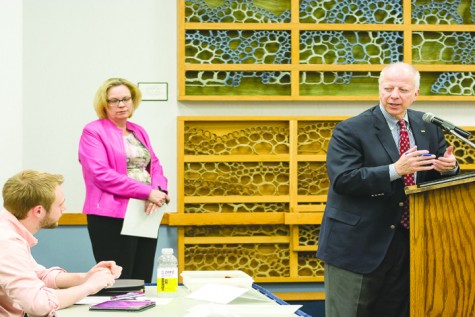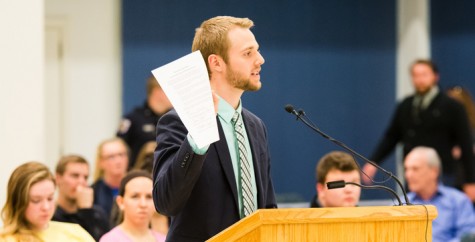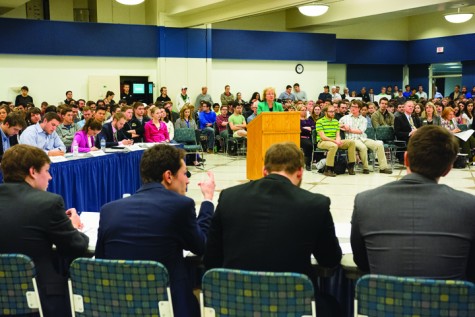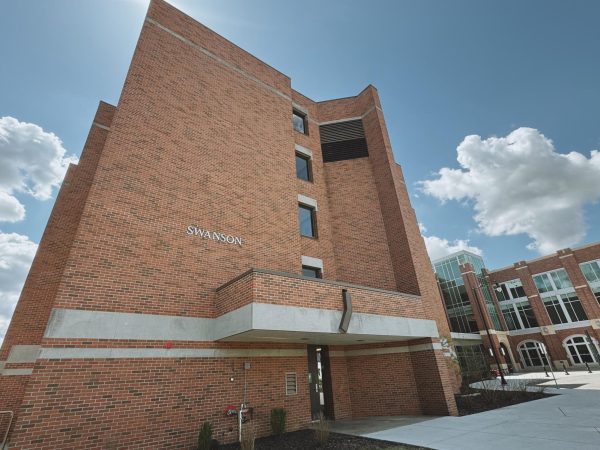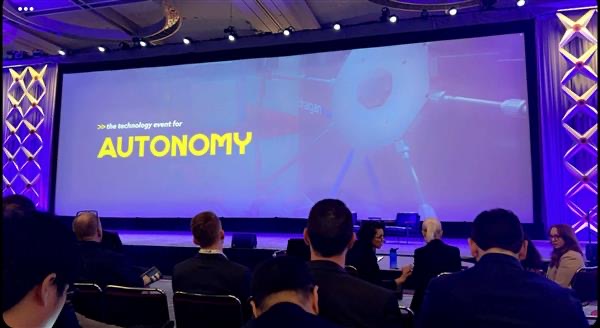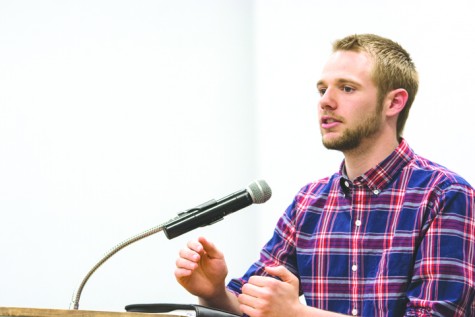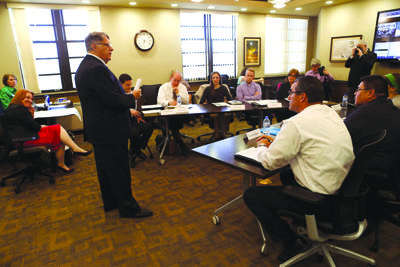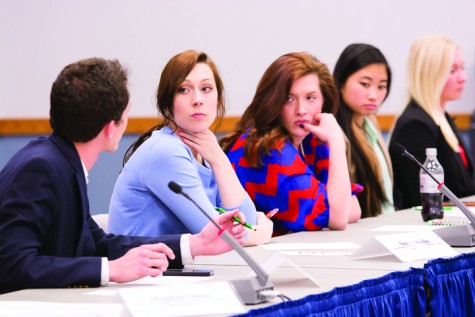New system for fees
COMMITTEE Starting this year, student fees will go through a revised process.
The process of student fee allocation will undergo some some significant structural changes after a new system went into effect at the beginning of this school year.
This year, student government will have much more influence on what organizations student fees are spent on and how much the organizations receive.
Two years ago when Kylie Oversen was student body president, she and members of Student Senate started looking into the way student fees were spent and found not many students knew about the allocation process or where their money was going.
“We got questions from students on where their money was going and what were the benefits,” Oversen said. “It was a common theme that they had no idea where the fees were going. We wanted to change that and have more student involvement.”
Oversen partnered with then Student Body Vice President Nate Elness, Vice President for Student Affairs Lori Reesor and Vice President of Finance and Operations Alice Brekke to review the policies that were in place and see if there was a way they could change it to have more student involvement.
Brekke provided an overview of the history of how student fees were budgeted. Reesor was in her first year at UND and offered input from her experiences at other campuses. Oversen and Elness came in with the understanding that they needed to make the process easier for students to understand and be able to have their opinions heard.
Overall, the process took about six months and was submitted and signed by President Robert Kelley in March 2012.
“We wanted the process to be more transparent,” Reesor said. “We want to educate students about their fees and provide more opportunities for input from students about where the fees go.”
The new system, the Student Fee Advisory Committee, formerly called the University Fee Allocation Committee, is composed of Student Body President Nick Creamer, Student Body Vice President Lexi Hanson, an Association of Residence Halls representative, one student senator, two students at-large, a representative from the Office of Academic Affairs, a Finance and Operations representative, a Student Affairs representative and two non-voting members.
The main change to the process is the creation of subcommittees that oversee the areas where student fees go. The areas that receive student fees include academic affairs, athletics, finance and operations and student affairs. That funding in turn goes to places such as the Wellness Center, shuttle bus services, writing center, student government and many other organizations on campus.
“The fees support costs associated with facilities, athletics and other costs outside the classroom,” said budget manager Cindy Fetsch said. “Those entities that help students outside the classroom.”
Each subcommittee then reports its recommendations back to the main committee by Dec. 6. Final recommendations will be submitted to Kelley by Jan. 31.
“We wanted the process to be more transparent,” Reesor said. “We want to educate students about where their fees are spent.”
Part of the process to get students involved is two open forums students are encouraged to attend. The first part of the hour-long forums will be an overview for students so they understand the process. Then the floor will open for questions.
“We want to utilize our resources to gauge the priorities of students,” Creamer said. “We hope to craft specific questions from the forum to send out to the whole student body, probably in the form of the Tuesday Two’s.”
The first forum is set for Oct. 21 at 3 p.m. and the second is Oct. 24 at 11 a.m., both in the Loading Dock at the Memorial Union. Pizza and pop will be served at both forums.
Megan Hoffman is a staff writer for The Dakota Student. She can be reached at megan.hoffman@my.und.edu



